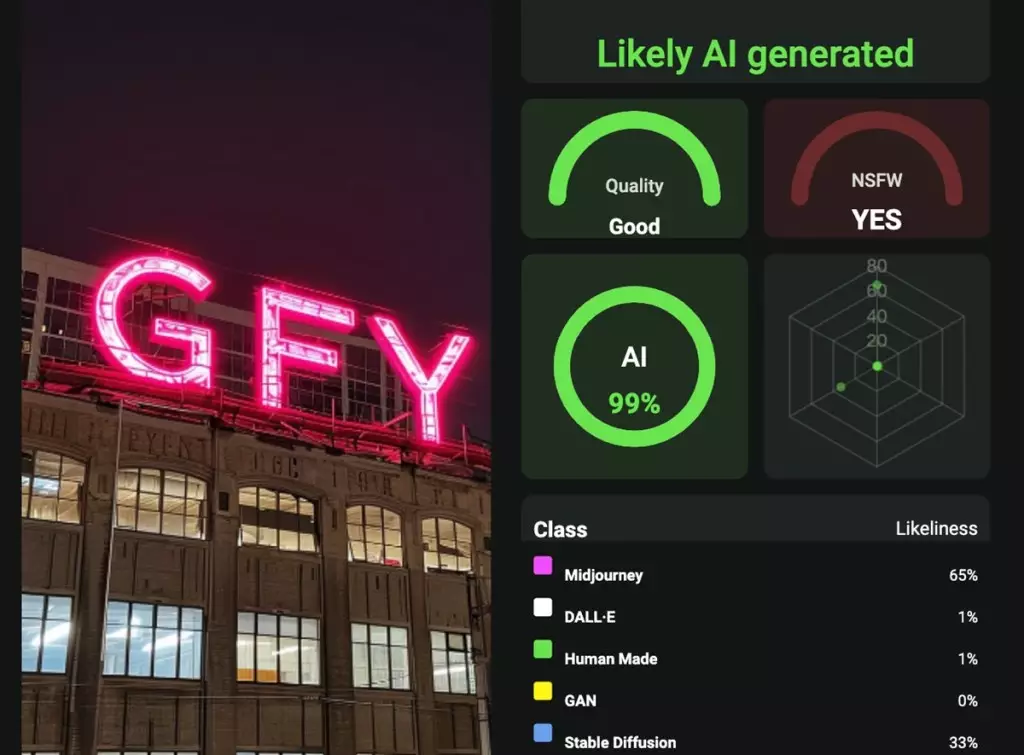In a world increasingly dominated by artificial intelligence, the threat of fraudulent activities driven by AI technologies has skyrocketed. Recently, a startup named AI or Not has emerged, attracting attention and funding for its innovative platform designed to combat the rising tide of misinformation and deepfakes. The alarming reality is that a significant number of corporate finance professionals now identify AI scams as a severe and immediate threat—an existential risk amplified by the rapid advancements in generative AI technologies.
AI or Not has successfully raised $5 million in seed funding, secure in the belief that its specialized approach to detecting AI-generated content can play a crucial role in maintaining digital integrity. With investors such as Foundation Capital, GTMFund, and Plug and Play on board, the organization appears well-positioned to expand its operations in a landscape where the need for verifiable and authentic digital content is more pressing than ever.
A recent survey highlighted that over 85% of corporate finance professionals now recognize the existence of AI scams as a significant threat to their operations. More concerning is the statistic revealing that over half have already experienced encounters with deepfake technologies, making it all too clear that the dangers of misinformation are no longer abstract. Predictions suggest that generative AI scams could lead to losses exceeding $40 billion across the United States in the next two years alone.
This eye-opening data illustrates how deeply rooted these issues are and the necessity for startups like AI or Not to advance their technology swiftly. The platform has already garnered a user base of over 250,000, indicating a substantial demand for solutions that can address the evolving challenges posed by generative AI.
What sets AI or Not apart from its competitors is its proprietary algorithms capable of identifying fake content across various media, including images, audio, and video. The startup understands that the effectiveness of their tools must keep pace with the rapid evolution of fraudulent techniques. From manipulated videos of political figures to AI-generated music on streaming platforms, the potential for misuse is staggering.
Zach Noorani, a partner at Foundation Capital, emphasized the vital nature of AI or Not’s mission by stating that our reliance on visual and auditory cues for verifying authenticity has become increasingly complicated in the age of generative AI. This lack of surety surrounding digital content authenticity demands robust and reliable solutions, reinforcing the need for AI or Not’s detection platform.
AI or Not’s innovative tools serve as a line of defense not just for individuals but for businesses and governments as well. As Anatoly Kvitnisky, the CEO, points out, generative AI has unveiled vast potential while simultaneously posing significant risks that can go as far as affecting global corporations and everyday people alike. The organization’s mission strives to create a safer digital ecosystem, ensuring that its users can detect and avert potential damages from AI-fueled fraud before they escalate.
Moreover, the recent backlash against tech giants like Meta underscores a growing public demand for transparency and authenticity in digital content. The mistrust sowed by incidents involving manipulated images and voices heightens the necessity of effective solutions like those offered by AI or Not.
As the landscape of digital content continues to evolve under the influence of generative AI, startups like AI or Not are vital in protecting the integrity of information in our digital world. With its recent surge in funding, the company is poised to advance its technologies, helping individuals and organizations confront the growing complexities posed by AI-driven threats. The critical balance between leveraging AI’s potential and combating its misuse remains precarious, but with ongoing innovation, there is hope for a safer digital future. AI or Not’s journey has just begun, and its developments will be crucial as we navigate this new frontier of technology and trust in the digital age.

